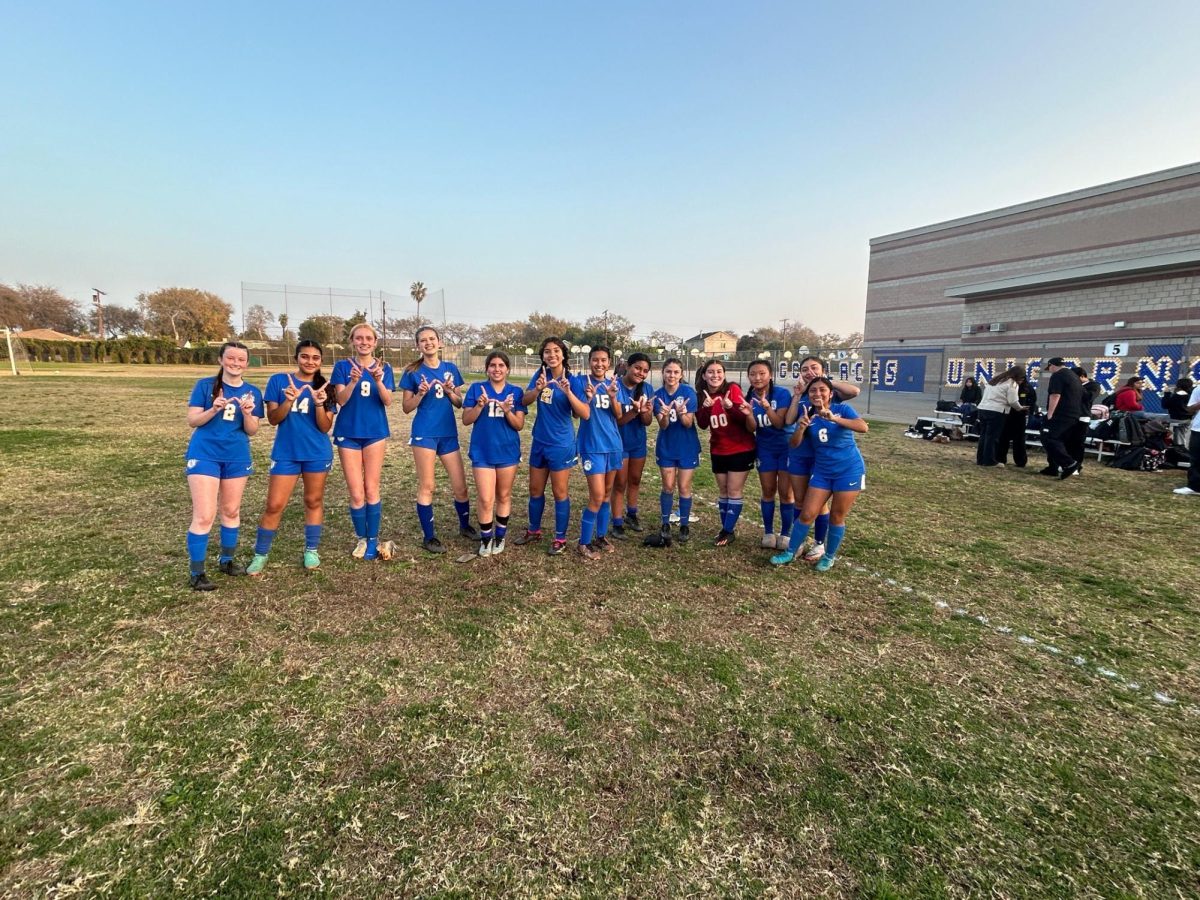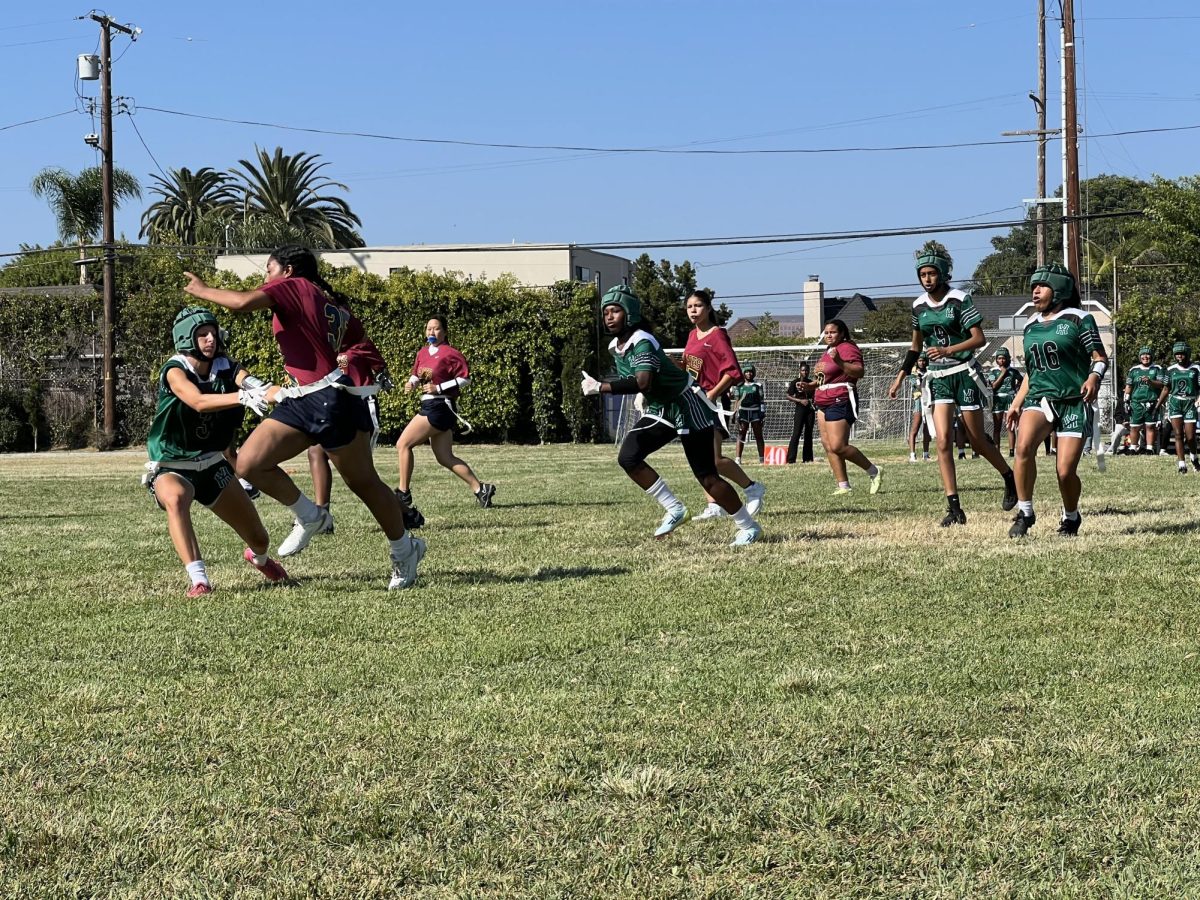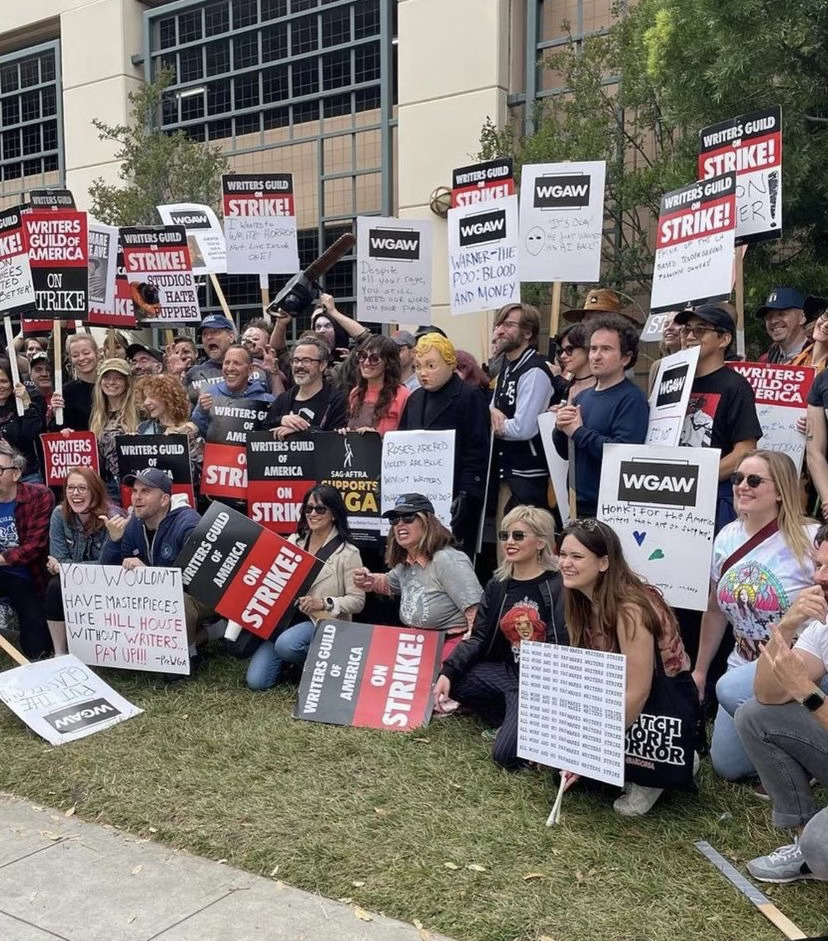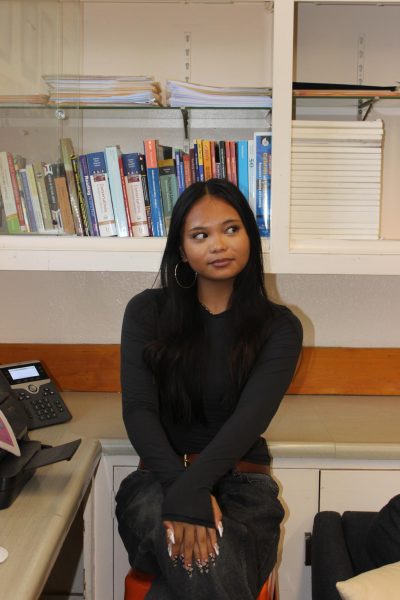The American film workers’ labor strikes have persisted since the beginning of this summer. Although Screen Actors Guild & American Federation of Television and Radio Artists (SAG-AFTRA) and Writers Guild of America (WGA) representatives have met with Alliance of Motion Picture and Television Producers (AMPTP) executives, picket lines continue outside studio lots as the industry stalls. Now, LACES families working in Hollywood say they’re feeling the economic pressure of the hiatus more than ever.
“There is no work during the strike,” writer Lee Farber (“The Soup,” “The Lonely Italian”) said when asked about his recent employment opportunities. “It is what they call ‘pencils down’. That’s the only way this strike is going to be effective.”
Farber, who has two daughters at LACES, started writing professionally and joined the WGA in 2001. He now writes and directs TV shows for major networks and is a member of all three major film guilds.
Farber noted several differences between this current movement and others in the past. He described that although most strikes’ demands revolve around wage raises, the industry currently faces a “major inflection point” in compensation methods transforming along with societal developments.
With the introduction of residual contracts in the 1970s, creatives were paid each time TV shows re-aired, allowing them to make a living on the productions’ continued success. Now, Farber says, these residual payments are nonexistent with the rise of streaming, where companies are “free to exploit that work over and over without having to pay the creatives.”
“It’s hollowed out the middle class in the entertainment industry,” Farber said. “So you only have the incredibly wealthy people like those who made ‘Seinfeld’ or ‘Friends’, and then the struggling creatives who have to find another job or drive for Uber until their next writing gig comes along.”
Roderick Davis, a television editor who has worked on shows such as “Fire Country” and “Magnum P.I.,” and father of 12th grader Charlie Davis expressed his concern over losing health insurance from the strikes.
“Our health insurance is paid through the unions we’re all part of,” he said. “And to qualify for health insurance, we have to work a certain amount of hours. So it’s gonna get to the point where hundreds of thousands of people suddenly aren’t working and don’t have health insurance, and they’ll have to start paying for it out of pocket with money they’re not earning.”
Farber says that another novel characteristic of these strikes is that the creatives are preventing threats to their livelihood instead of correcting them. The proliferation of generative AI services such as ChatGPT and Midjourney enables content generation without the services of traditional film workers. This development has concerned workers of replacement. WGA picket lines covered by the Associated Press feature signs proclaiming “AI is not ART” and “AI wrote this sign,” and Farber echoed these sentiments. With over twenty years of professional writing experience, though, he’s confident AI will not fully replace writers in the industry.
“It will never have the nuance that a human writer has,” Farber said. “It’s using mathematics to churn out a version of everything that came before it. Humans are the sum total of our experiences, yes, but what we create comes from our souls. So I don’t think that AI could ever truly replace humans.”
Emily Hagins, an independent film writer, director, and family friend to the LACES community claims that it lacks the authenticity of what a human-generated film actually creates. “AI does pose a threat because it can learn and grow and aggregate things that people come up with, and I think there should be parameters so that people can feel the most creatively free and able to make things.”
In August 2023, The Hollywood Reporter reported that 17,000 people lost their jobs due to the strike’s impact. Hagins expressed how the strikes have threatened her employment opportunities even as a non-WGA member. “Whether or not you’re in a guild, you’re probably not working right now. Because even independent films use SAG actors, just out of respect, there’s just a lot of ripple effects from everyone not working,” she said.
The strikes have affected other types of industry workers beyond actors and writers. Adam Weissler, senior producer at the entertainment TV show “Extra” and father of 12th grader Holden Weissler, described to Untied how the strikes have pushed him to find creative workarounds for actors bound by union rules.
“We’ve been fortunate to interview some pretty big actors with other projects,” he said. “We just interviewed Keanu Reeves for his band Dogstar, but we couldn’t ask about any movie stuff at all since that’ll obviously be breaking strike rules.”
Though those picketing outside studio lots are actors and writers, Weissler is sympathetic to other workers who rely on the stagnating industry for income.
“Be it costume people or publicity agencies or caterers, they’re all feeling that hurt. And they’re not necessarily going to get a benefit out of this. They’re not going to get the same raise the actors are going to get,” he said.
According to workers, non-striking community members and outsiders can contribute to the movement in many ways.
“Follow the different social channels, see what’s on the news, read the paper,” Weissler recommended. “And understand the working conditions that creative people in Hollywood go through. It’s not all the big-name actors making big money—Hollywood has a lot of creative people who aren’t wealthy and are struggling right now, and they deserve attention and a fair wage.”
Farber added that audiences can help the movement directly beyond educating themselves.
“Every time you drive by a picket line and honk, it means the world to us,” he said. And let the studios and streamers know that the most important part of entertainment is storytelling, and right now, you as a viewer won’t be happy until the storytellers are brought back to work.”
Farber has big dreams for the future of the creative world and stresses the importance of these strikes for that purpose.
“The hope is that everyone reading this—LACES students and everyone still in school—they’re the next generation of entertainers and creators. And they need to feel that if telling stories is what they love, they can pursue that and know they’ll be able to sustain a living doing it,” Farber said.
Though WGA representatives express continued frustration at the Alliance of Motion Picture and Television Producers with the strike reaching its four-month mark, he anticipates a coming resolution.
“‘Barbie’ and ‘Oppenheimer’ this summer have shown that what people want is great stories well told, and we are the people who tell those stories,” said Farber. “So, hopefully, we’ll be back telling them soon.”
Update: The Alliance of Motion Picture and Television Producers (AMPTP) and WGA have reached a tentative resolution as of 9/26, when this story went to print. The details of the resolution are yet to be finalized.




















